Amateur astronomers’ serendipitous discovery
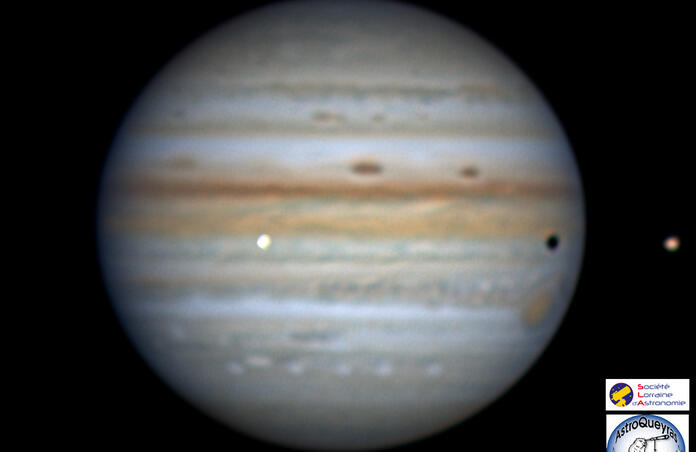
Amateur astronomers taking part in the DeTeCt program spotted a rapid flash of light at Jupiter's surface.
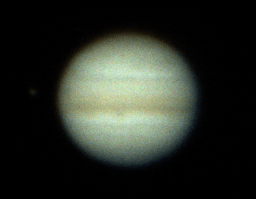
On the night of the 13th September, amateur astronomers were observing Jupiter. Since it was only 24 days after opposition, Jupiter’s apparent diameter was still quite large, favouring such amateur observations. Moreover, you could nicely follow the transit of the Jovian moon Io as it was casting its shadow onto the gas planet. What they imaged instead is a rare flash of light that was likely caused by an asteroid colliding with the Solar System’s giant.
There were actually 5 simultaneous discoveries from around the world. First of all, let’s introduce Maciej Libert from Germany, who uses a 350mm Schmidt-Cassegrain telescope. While on a coffee break, his computer connected to the instrument noticed a flash, but unfortunately capture was not running, and we don’t have his images. His compatriot Harald Paleske however, who operates a slightly larger telescope (408mm Newtonian), was able to take a snapshot of the event. He posted on the German forum for amateur astronomers astrotreff.de.
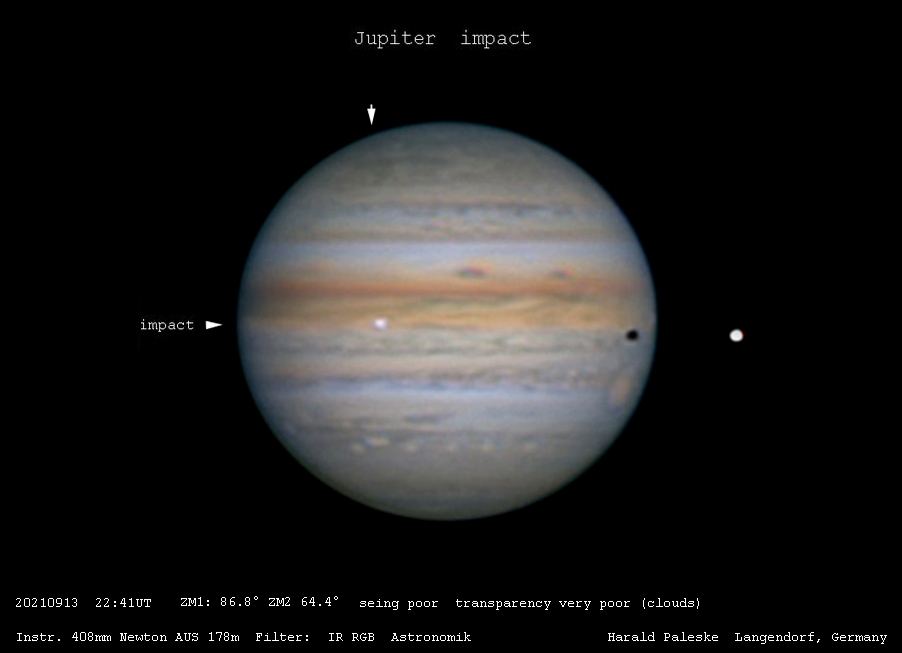
Not far from there, Italian Simone Galelli saw the flash through the eyepiece of his 300mm Dobsonian telescope and posted about the unusual phenomenon on his Facebook page. And in France, Jean-Paul Arnould was taking images of Jupiter; after hearing about the discovery of the flash from another astronomy enthusiast he went over his videos again and noticed something worth reporting to the French Astronomical Society.
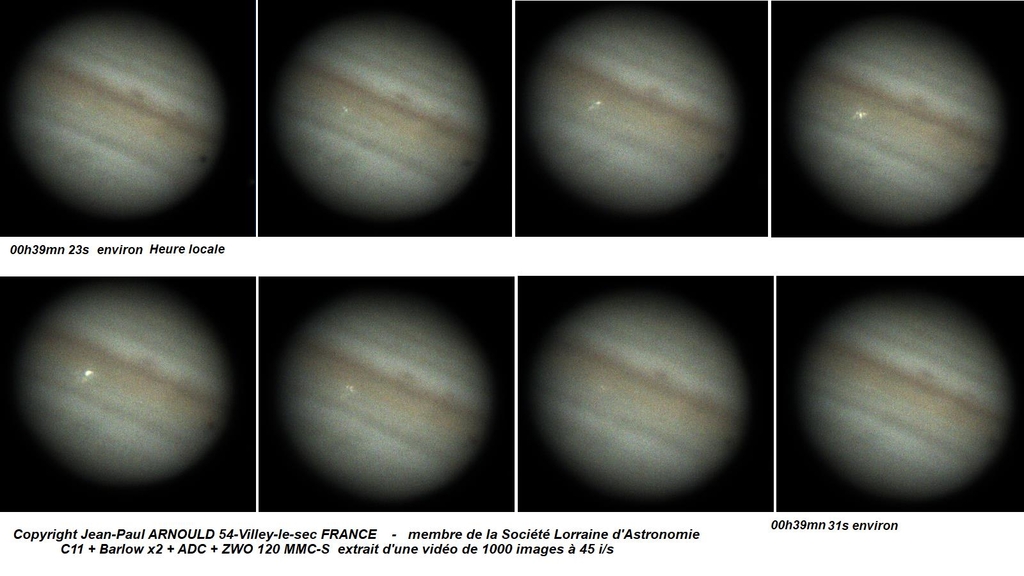
It’s mainly the observations from Brazilian stargazer José Luis Pereira that helped the aforementioned sightings come together. As a long-time participant of the Jupiter and Saturn impact detection "DeTeCt" program, he put his observations to the DeTeCt software. The analysis revealed that there was a “high probability” of him capturing an impact on Jupiter. He subsequently contacted the project lead Marc Delcroix, who was then able to send out an alert about it.
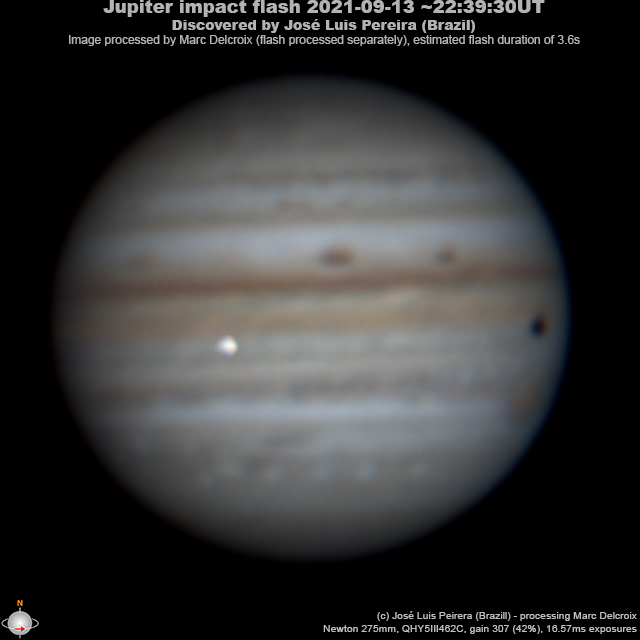
José Luis Pereira's detection 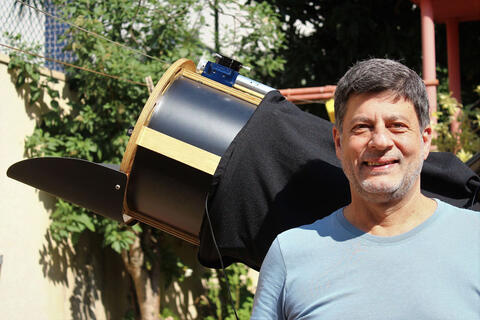
José and his telescope
Thanks to said alert, more images came in to the DeTeCt platform: three from France and one from Romania. It’s very likely that this is the brightest impact flash detected on Jupiter by amateur astronomers since the one caused by comet Shoemaker-Levy 9 in 1994 – there have only been another 7 since. All the footage of the two to three seconds long transient event is still being analysed to understand what exactly collided with the gas giant: since there are no dark impact spots left behind, a very rough initial estimate of 100 meters has been made, however this value could evolve as, e.g., its speed and composition get interpreted from the colour and type of the flash.
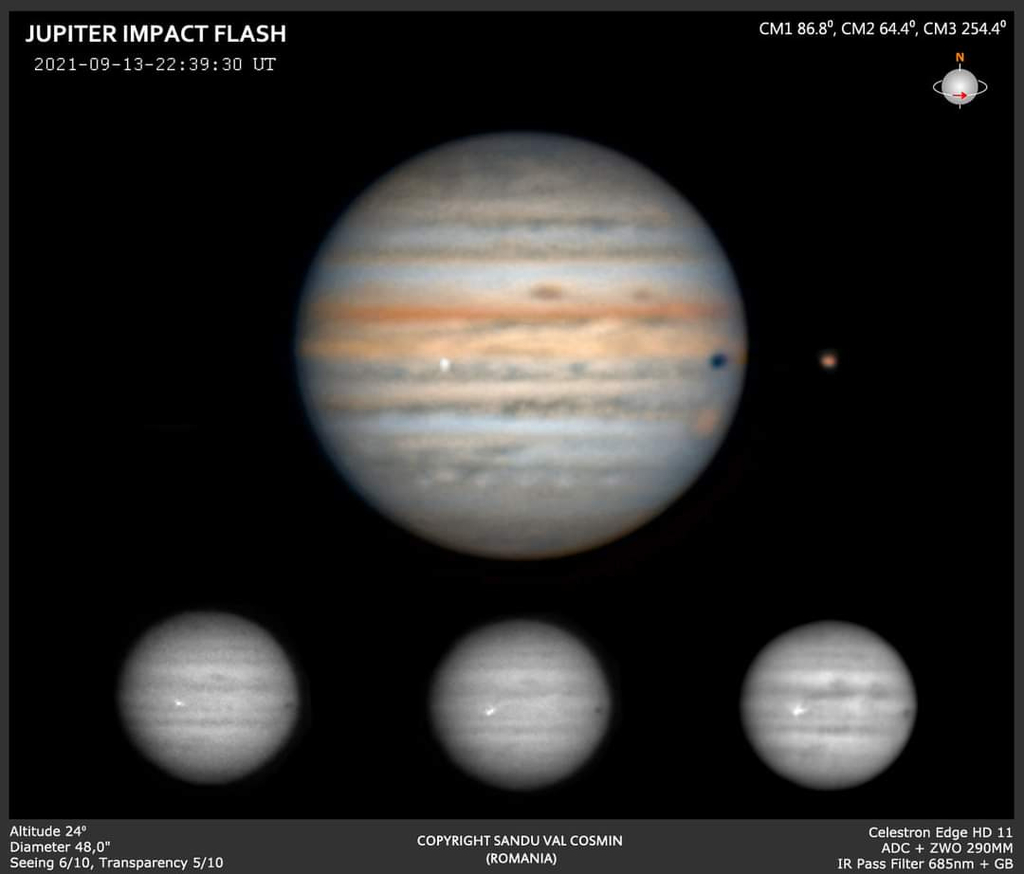
It is estimated that there are 15 impacts on Jupiter each year, although data from the Juno mission suggests that very small asteroids may be “absorbed” by the planet as often as every 20 minutes. This means we ought to thank our Solar System’s giant for its role with regards to all these space rocks, as it captures or at least deflects them before they can reach Earth. To be specific, Jupiter mainly takes care of long-period comets – it’s much easier to just give them a small gravitational nudge to make them escape the Solar System than to send them towards the very small target that is the Earth.
With the relentlessness of amateur astronomers added to Delcroix's easy-to-use software, an impressive amount of images of this event has been collected for further study.
Cover Image: D. Walliang, T. Humbert, S. Barré, A. Desmougin
Image Credits:
1 - J.-C. Griveau
2 - H. Paleske
3 - J.-P. Arnould
4 - J. Pereira
5 - C. Sandu Val
